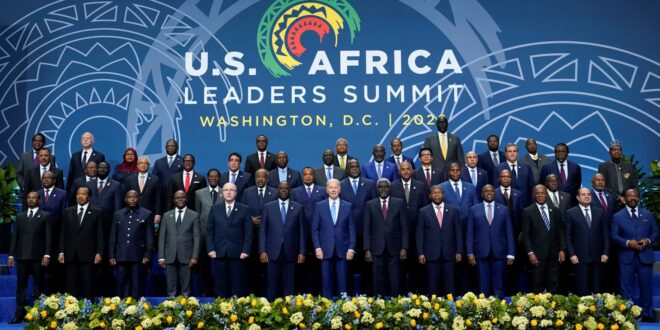U.S. President Joe Biden hosted 49 African heads of state and government, as well as senior leaders from the African Union, African entertainers, members of the continent’s diaspora and business, civil society and youth leaders during this week’s U.S.-Africa Leaders Summit. Senior Biden administration officials, including Vice President Kamala Harris, Secretary of State Antony Blinken, Defense Secretary Lloyd Austin and U.N. Ambassador Linda Thomas-Greenfield, as well as members of Congress and members of the U.S. private sector and civil society, also attended the summit and engaged extensively with their African guests.
The three-day gathering, the second one held since the inaugural 2014 summit hosted by then-President Barack Obama, sought to improve ties between Washington and the AU’s member states after a rough patch that included the four tumultuous years of a hostile Trump administration. When Biden took office, he pledged to repair Washington’s relations with African countries. But despite a number of impressive—if mainly symbolic—steps, Biden has largely failed to alter their downward trajectory. Though he has shied away from some of the worst excesses of his predecessor, the substance of U.S. policy has remained mostly intact in the first two years of his presidency.
During that time, African leaders condemned the “vaccine apartheid” perpetuated by wealthy, industrialized countries in the Global North, including the U.S., Canada and the European Union, during the COVID-19 pandemic. The discriminatory travel bans imposed by the U.S. and other countries after the initial identification by South African researchers of the omicron variant of the coronavirus did little to mollify these tensions.
 Eurasia Press & News
Eurasia Press & News



